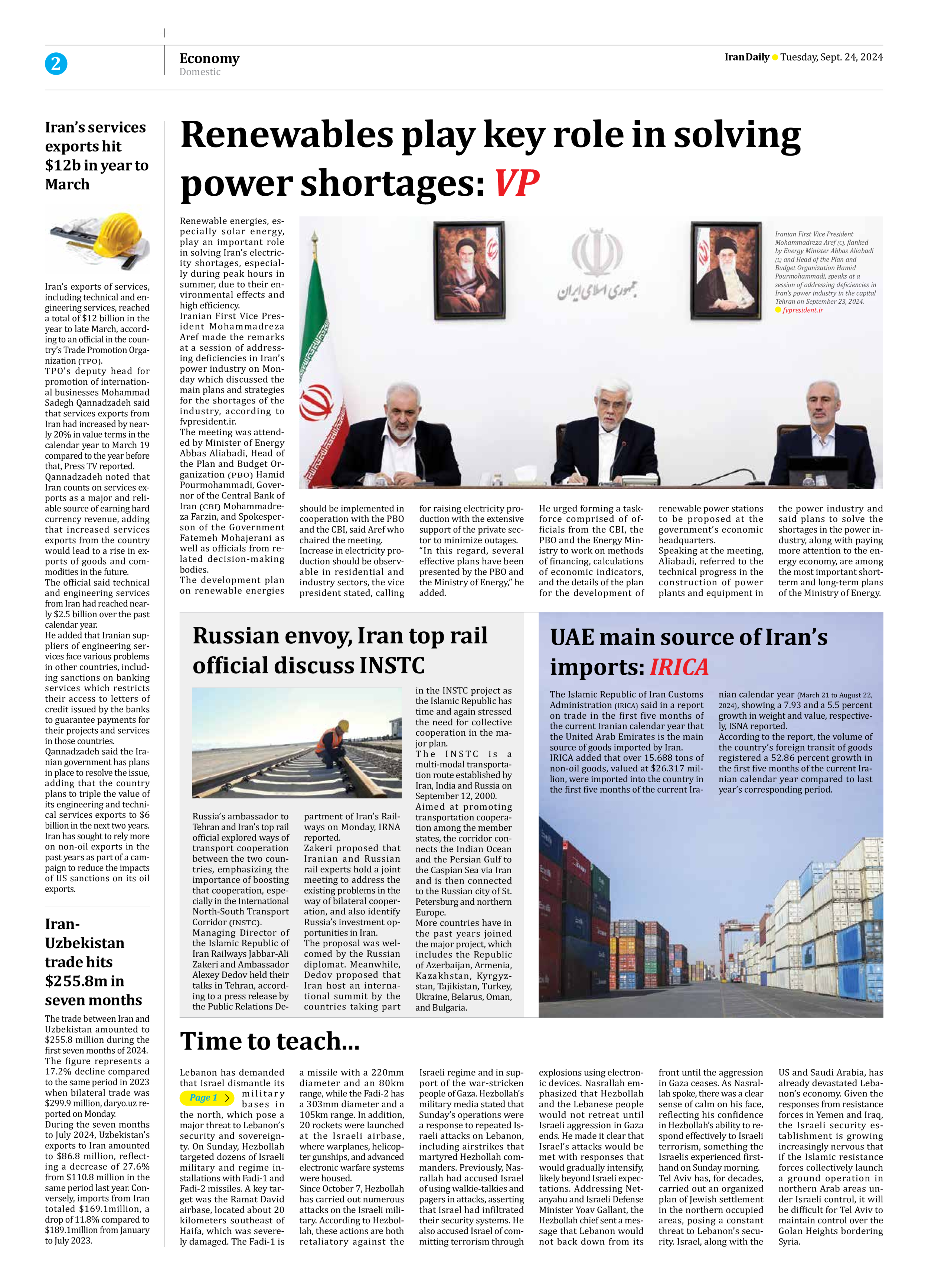
Time to teach...
Page 1
Lebanon has demanded that Israel dismantle its military bases in the north, which pose a major threat to Lebanon’s security and sovereignty. On Sunday, Hezbollah targeted dozens of Israeli military and regime installations with Fadi-1 and Fadi-2 missiles. A key target was the Ramat David airbase, located about 20 kilometers southeast of Haifa, which was severely damaged. The Fadi-1 is a missile with a 220mm diameter and an 80km range, while the Fadi-2 has a 303mm diameter and a 105km range. In addition, 20 rockets were launched at the Israeli airbase, where warplanes, helicopter gunships, and advanced electronic warfare systems were housed.
Since October 7, Hezbollah has carried out numerous attacks on the Israeli military. According to Hezbollah, these actions are both retaliatory against the Israeli regime and in support of the war-stricken people of Gaza. Hezbollah’s military media stated that Sunday’s operations were a response to repeated Israeli attacks on Lebanon, including airstrikes that martyred Hezbollah commanders. Previously, Nasrallah had accused Israel of using walkie-talkies and pagers in attacks, asserting that Israel had infiltrated their security systems. He also accused Israel of committing terrorism through explosions using electronic devices. Nasrallah emphasized that Hezbollah and the Lebanese people would not retreat until Israeli aggression in Gaza ends. He made it clear that Israel’s attacks would be met with responses that would gradually intensify, likely beyond Israeli expectations. Addressing Netanyahu and Israeli Defense Minister Yoav Gallant, the Hezbollah chief sent a message that Lebanon would not back down from its front until the aggression in Gaza ceases. As Nasrallah spoke, there was a clear sense of calm on his face, reflecting his confidence in Hezbollah’s ability to respond effectively to Israeli terrorism, something the Israelis experienced firsthand on Sunday morning.
Tel Aviv has, for decades, carried out an organized plan of Jewish settlement in the northern occupied areas, posing a constant threat to Lebanon’s security. Israel, along with the US and Saudi Arabia, has already devastated Lebanon’s economy. Given the responses from resistance forces in Yemen and Iraq, the Israeli security establishment is growing increasingly nervous that if the Islamic resistance forces collectively launch a ground operation in northern Arab areas under Israeli control, it will be difficult for Tel Aviv to maintain control over the Golan Heights bordering Syria.







